How Can SPH Support Wellbeing?
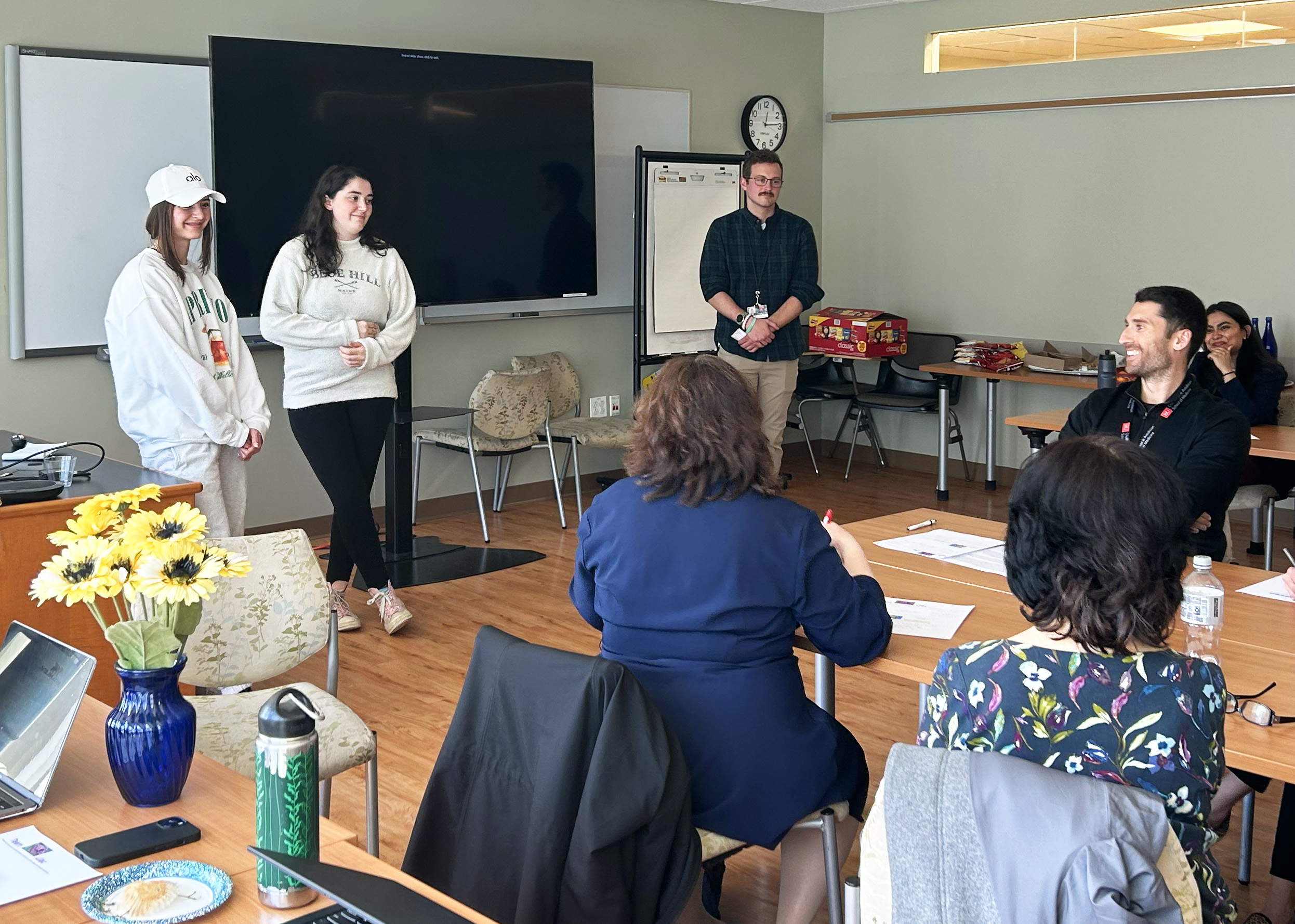
Students on Team Sunflower take questions and comments from the panel on their idea for a series of political roundtables intended to address sociopolitical stress at SPH.
How Can SPH Support Wellbeing?
Students in Carol Dolan’s mental health course identified a variety of strategies to promote student wellbeing, including a first-year mentorship program and a series of political roundtables, and had the opportunity to pitch their proposals to a panel of BU and SPH wellbeing professionals.
With research indicating that 75 percent of all lifetime mental illness begins by age 24, colleges and universities have a crucial role to play in providing the necessary resources to support student mental health.
Boston University has acted to address this imperative need through its Student Wellbeing Office, offering grants of up to $2000 to fund programs, events, and initiatives led by faculty, staff, and students aimed at promoting wellbeing.
Recognizing an opportunity to foster a culture of wellbeing within the School of Public Health, Carol Dolan, a clinical professor of community health sciences at SPH, introduced the grant criteria to students in her course Mental Health and Public Health: A Social and Behavioral Sciences Perspective (SB780). Dolan then asked the students to come up with their own ideas for supporting wellbeing at the School. She emphasized that they be evaluated not only on the evidence-based rationales for their ideas, but also on their proposed budgets, implementation timelines, and other practical considerations.
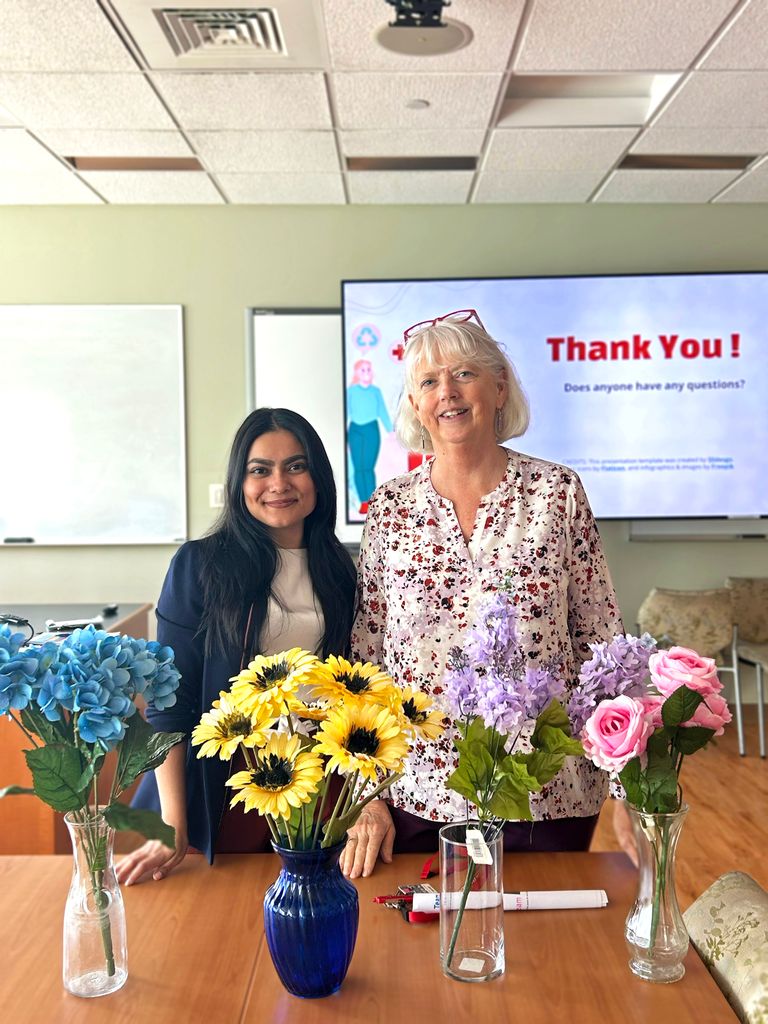
On a recent Friday morning, the students gathered to present their proposals, which they collaborated on in groups throughout the semester. While varied in their approaches, all four teams (which Dolan named for the flowers hydrangea, lilac, rose, and sunflower) landed on strategies intended to improve social wellbeing through community-building initiatives.
“We knew that students enter [SPH] from different places and stages in life and may feel socially isolated in their first semester on campus,” says Habin Cho, a member of Team Lilac and an MPH student studying health communication and promotion. Together, Cho and the other members of Team Lilac proposed “First Year Connections,” a mentor-mentee program that matches more senior students with first-semester students to foster a sense of belonging and social connectedness on campus.
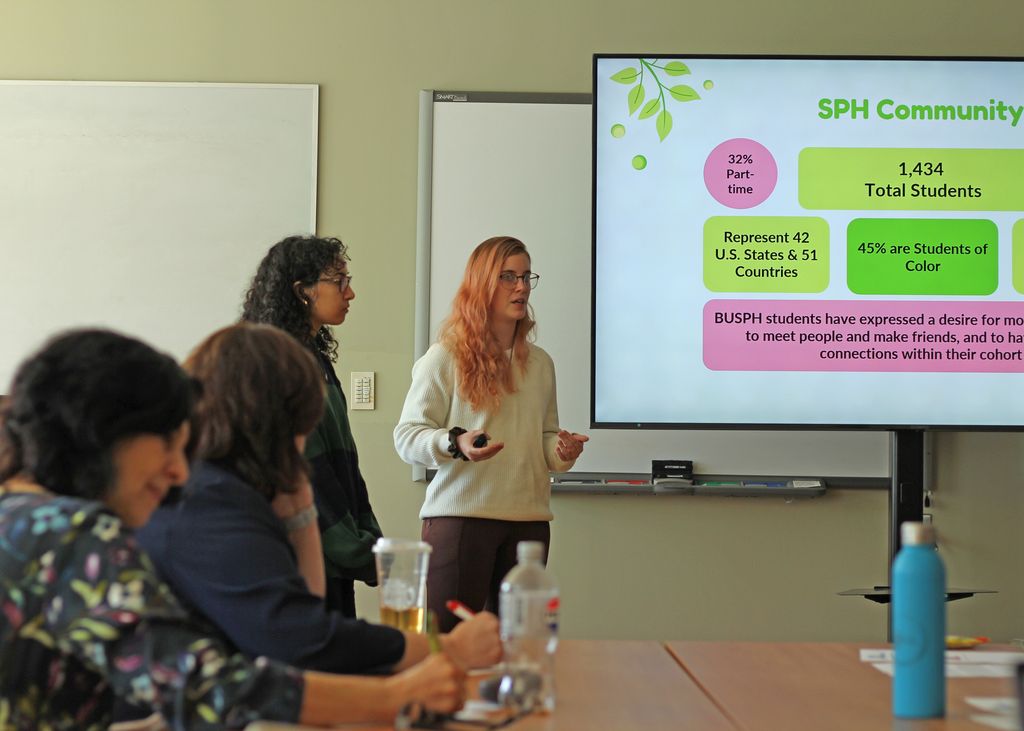
In a similar vein, Team Hydrangea suggested the School adopt a pod model to connect students with other likeminded members of the SPH community. Each pod would contain nine “peas,” eight newly enrolled and current students and one faculty or staff member. To distinguish the program from academic advising, participants would be encouraged to meet regularly as a group to exchange general life advice, such as pointers for finding housing, recommendations for recipes, and other “adulting” tips.
“Community is key,” says Dolan, who also teaches the course Trauma, Trauma-informed Care, Recovery and Resilience (SB832) and directs the Mental Health and Substance Use context certificate. “This project was designed to enhance understanding of mental health issues in higher education, but also to shift the frame away from mental health to wellbeing. I wanted to give students an opportunity to practice building community because it is difficult, but important to overall wellbeing.”

According to BU Student Wellbeing, wellbeing is not so much a state that one achieves, but a lifelong process of learning how to feel balanced and satisfied regardless of life’s ups and downs. While the foundation of an individual’s wellbeing is having their core survival needs met—think food, shelter, and safety—wellbeing also encompasses seven other dimensions of life, including social, emotional, intellectual, physical, environmental, financial, and even spiritual needs.
Early in the semester, Dolan invited Melissa Paz, the assistant director of mental health promotion at BU Health Promotion and Prevention (HPP), to visit the class and familiarize students with the types of programs her office offers. Paz later returned with her colleague Nilagia McCoy, a marketing and communications manager at HPP and part-time MPH student, to hear the students’ proposals and participate in the panel of BU wellbeing professionals Dolan assembled to ask the students follow-up questions and provide them feedback.
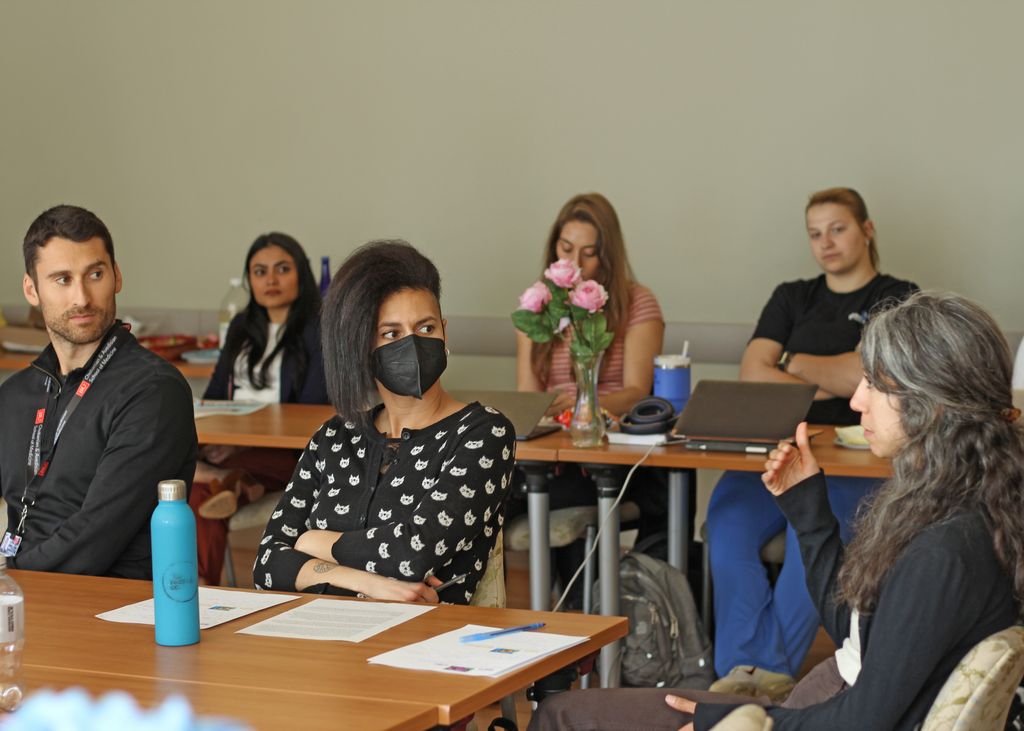
Like Team Lilac, Team Rose also focused on supporting new students; their program, “Social Pulse,” would bring together first-year students with similar interests for events and activities, such as sports games and coffee chats, led by senior peers. The idea was attractive to panelist Maria McCarthy, director of advising and career in SPH’s Career and Practicum Office, who commented, “It is often so hard to get student engagement, but who better to get it than students themselves?”
To reinforce McCarthy’s point, the students from Team Sunflower initiated a fervent discussion amongst the panelists and their peers with their proposal to host a series of political roundtables where students, faculty, and staff could come to freely share their perspectives and practice tolerance of diverse political viewpoints. Dolan suggested introducing the art of debate to syllabi across the School.
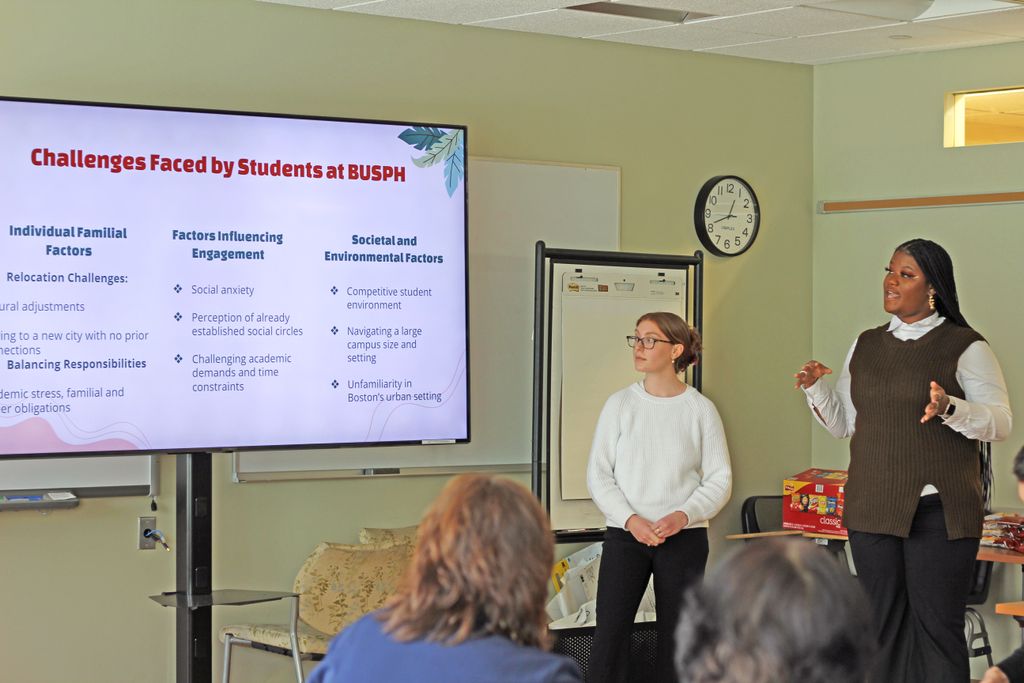
Panelist Mary Murphy-Phillips, assistant dean of students at SPH, says she noted the idea for the Graduate Student Life office to consider as they plan programming for the fall. The students’ focus on sociopolitical climate is “critically important,” she says, particularly as the as the country approaches election season.
“Loneliness and isolation have unfortunately persisted beyond the COVID lockdown era,” says Pedro Falci, the managing director of BU Student Wellbeing and another panelist. “We have been tracking the monthly metrics on the Student Wellbeing site, and the webpage on social wellbeing is consistently one of the most visited pages on our site month after month. So, to hear students pitch concrete ideas for mentorship and advising programs to boost the sense of community and belonging at SPH resonated strongly with me. I thought all four groups identified a true are of need within SPH but introduced unique solutions on how to boost that sense of belonging. If any groups are interested in pursuing their ideas beyond Dr. Dolan’s class, I would invite them to apply for a Wellbeing Grant for real!”
